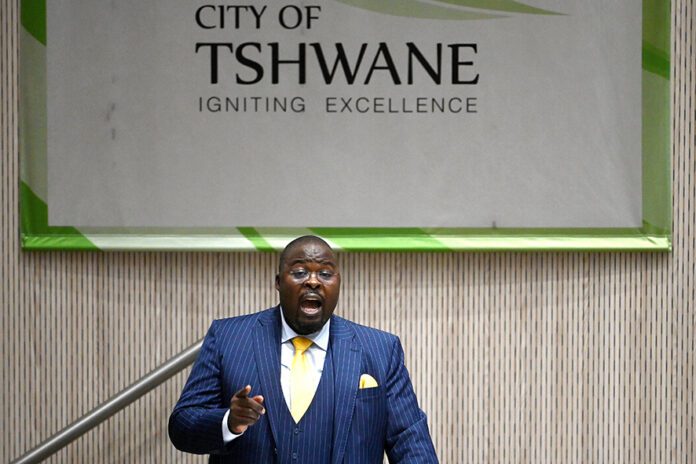South African political parties have looked towards the Denmark blueprint of the coalition government, where individuals such as the disgraced weekend special Tshwane mayor Murunwa Makwarela would never have come anywhere close to the mayoral chain.
South Africa’s leading political parties, including the ANC, DA, EFF, ActionSA, IFP and Good, conducted the study into the European country last year and Sunday World has seen the report they compiled last month.
The study, sponsored by the Danish embassy, reveals among the reasons for stable coalitions in that country is the constitutional character of its mayors.
“South Africa may consider adopting some lessons from this which could aid coalition stability,” reads the report titled Building a Coalition Culture: Lessons from Denmark.
“Mayors are elected for four-year terms with the security of tenure, and are the only full-time paid positions in local councils. The idea is that the mayor is the head of the civil service in local governments.”
“Mayors can’t be removed through spurious motions of no confidence, bringing stability to local councils. They may only be removed in limited circumstances, akin to an impeachment procedure, where the mayor has committed an offence or material constitutional breach.”
Makwarela, Cope’s sole councillor in the country’s capital, wreaked havoc recently when he became mayor after the ousting of Randall Williams. He only lasted in the position for a couple of days after the lid was lifted on his insolvency.
Had a mayor in South Africa had a fixed term, Williams would have most likely finished his term of office in 2026. This would have prevented chancers such as Makwarela.
Other differences between Denmark and South Africa in the workings of coalition governments include the role played by the national leaders in the formation of coalition governments in municipalities. In Denmark, the local leaders of political parties have more power in decision-making and the management of coalition affairs.
“The rationale is that voters voted for local leaders to make decisions, who better understand the local issues at play. Therefore, the political response to election results should also be framed at the local level.”
A problematic area identified with the South African coalition government is their size and the number of parties that form these, especially in Gauteng, where up to 10 parties of different leanings can enter into a co-government.
In Denmark, which has not had a majority party in more than a century, there is a threshold to get into municipal councils. The threshold stipulates that a party must get at least four seats. In South Africa, with one seat, a party can command tremendous power. This was the case with Makwarela, who rose to the top despite his party receiving votes for a single seat.
The report thus argues that too many small or single-issue political parties can fragment the political system and make coalition arrangements difficult to manage. Therefore, according to the report, “the barriers to entry prescribed in the Danish electoral system are argued to be justified on this basis” and South Africa is encouraged to consider taking this route.
The South African delegation to Denmark was surprised to find out that coalition agreements, which are kept secret at the southern tip of Africa, are in fact published in Denmark. Publishing the co-governing contracts in Denmark enables transparency and serves as a strong deterrent against breaching the contract.
“While not legally binding, these agreements are considered morally binding and a failure to adhere to them will be viewed negatively by the electorate” and parties that breach the contract are punished at the polls.
To read more political news and views, click here.
Follow @SundayWorldZA on Twitter and @sundayworldza on Instagram, or like our Facebook Page, Sunday World, by clicking here for the latest breaking news in South Africa. To Subscribe to Sunday World, click here



